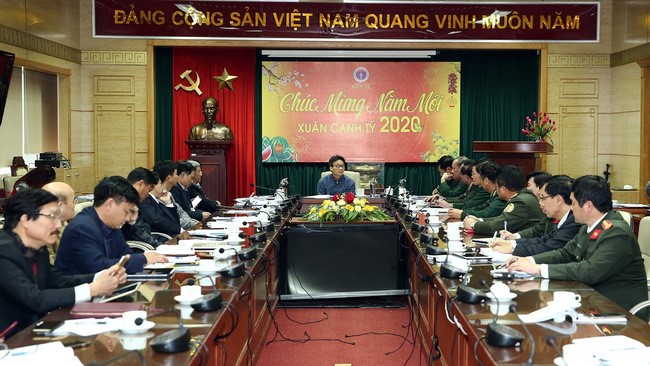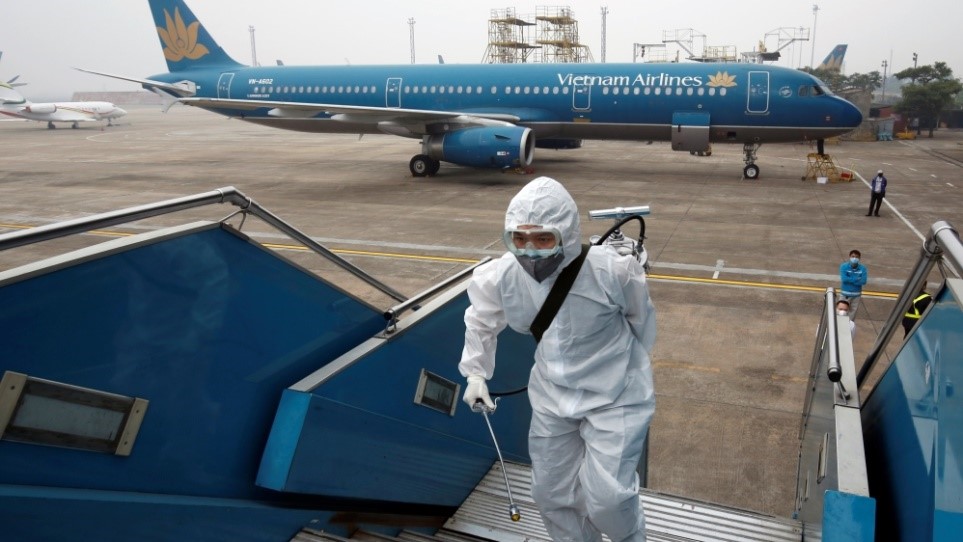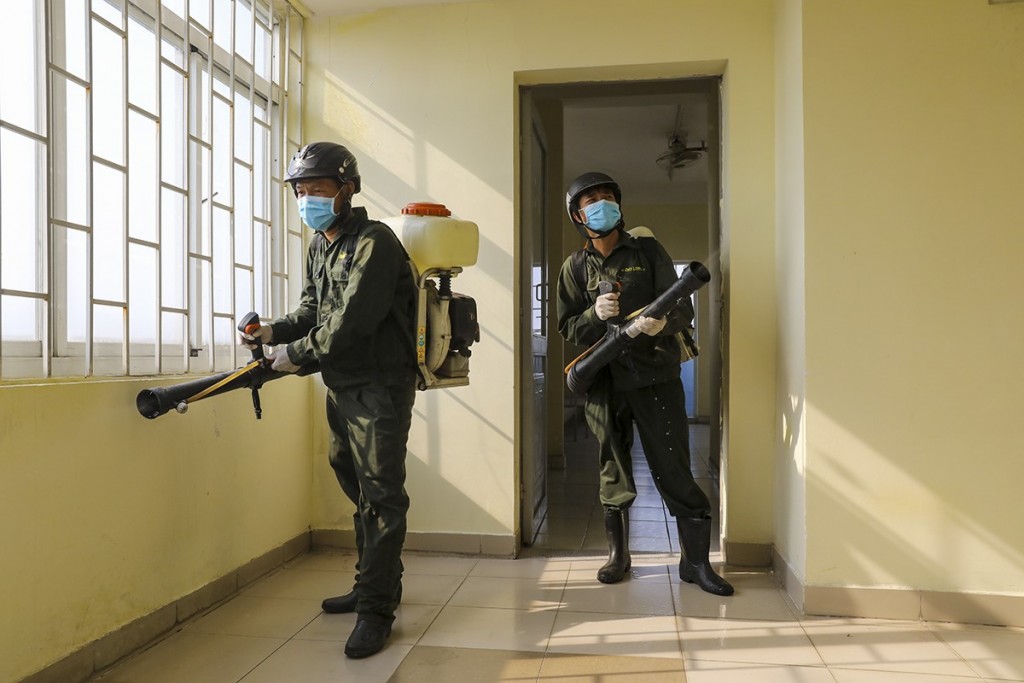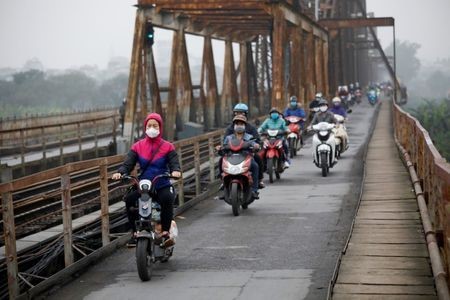As I wrote in a recent essay for international education colleagues, Vietnam has overcome steep odds throughout its millennia-long history.
This includes many contemporary arenas, one of which we are witnessing now.
In the midst of the Covid-19 pandemic, Vietnam is doing all of the right things, placing the health and well-being of its people and foreign visitors, i.e., all people, above all else. The result so far is relatively few confirmed cases of the coronavirus.

Deputy Primer Minister Vu Duc Dam asked the Ministry of Health to prepare medicines and necessary equipment, and promptly detect and quarantine nCoV patients, and urged centrally-run and provincial hospitals to swiftly set up emergency teams in localities
Vietnam has received global praise, including from the World Health Organization (WHO), for the steps it’s taken to contain the spread of the coronavirus, including quarantine for individuals who meet certain criteria. Deputy Prime Minister Vu Duc Dam noted: “If fighting Covid-19 has been a war, then we have won the first round, but not the entire war because the situation can be very unpredictable.”

The nightmare of Coronavirus in Vietnam began when two national Chinese were found t be the first cases in Ho Chi Minh city on January 23
Round two announced its dispiriting presence with the discovery of new cases from the evening of Friday, March 6, many of which can be traced to Vietnam Airlines flight VN54 from London to Hanoi four days before. Unfortunately, this spike in cases exposed a societal fault line that has revealed a measure of anti-foreign sentiment. While some of the criticism is deserved, some is not.
Keep in mind that as of the afternoon of March 6, Vietnam had a grand total of 16 Covid-19 cases, the last one reported on February 13. People were beginning to calm down and look forward to returning to normal. Of the cases reported since then (as of March 21), many of which are related directly or indirectly to VN54 and other flights, 25 of those who have tested positive and are currently receiving treatment, or 33 percent, are foreigners.
In general, Vietnamese are open-minded and friendly but, as in most societies, there is an element of xenophobia among some segments of the population, in this case, stoked by fear of a highly contagious disease and a marked increase in the number of foreigners who have tested positive. Think of this as the mirror image of U.S. President Trump’s reference to Covid-19 as a “foreign virus.” They overlook the fact that viruses can originate anywhere and don’t distinguish between nationalities; they only infect human beings, without discrimination and without mercy.
A gym in Hanoi posted a sign that stated “Due to the complicated situation of corona disease. To avoid the spread the management requested that the club not accept foreign guests. Hope the foreign guests sympathize.” Not surprisingly, foreign customers were not sympathetic. Why not insist that all patrons wear a face mask, in accordance with a government requirement that took effect on March 16?
Speaking of face masks, there have also been complaints that not all foreigners are wearing them. To be clear, the requirement states that “All Vietnamese and foreign nationals in Vietnam shall wear face masks at crowded public places, including supermarkets, airport terminals, train stations, coach stations, and public transport vehicles,” in addition to domestic and international flights to and from Vietnam and “during their stay at the airport terminals.”
It’s sound advice that everyone should follow. Even if someone, likely a foreigner, does not think it’s necessary, they should wear one because it’s a legal requirement and, equally important, out of respect for others to assuage any fears they might have about possible virus transmission. It’s a minor inconvenience to ensure the common good.
On the other hand, some foreigners have resisted safety measures such as quarantine. One highly publicized case was of 20 South Korean visitors from Daegu, a hotbed of Covid-19 in that country, who refused to follow local authorities’ quarantine request in Da Nang.
In typical Vietnamese fashion, the Da Nang chairman, Huynh Duc Tho, drafted a letter to this group in which he expressed his regret and apologized that the city was unable to welcome them in the midst of the epidemic. In fact, the visitors refused the welcome and chose to fly home as soon as possible rather than cooperating in the interests of everyone’s health and safety.
In another case, a British couple on holiday who arrived on flight VN54 was told that they had “left infections everywhere” over several days. As reported by a British media outlet, they were initially quarantined in a hospital in Lao Cai, which they complained was dirty and without hot water. However, in spite of complaints about poor conditions (quarantine is a medical necessity not a luxury vacation, after all), the couple “praised the no-nonsense response of the Vietnamese authorities.”
People are well-advised to heed the words of Prime Minister Nguyen Xuan Phuc, who has spoken out forcefully against discrimination directed towards people infected with Covid-19, be they Vietnamese or foreigners. That this message came from the prime minister is an indication of how seriously the government takes this issue. That is leadership in action.
Quarantine and social distancing: making lemonade out of lemons
On Sunday, March 15, a British man posted in an expat group on Facebook that he had arrived on the last flight from London to Hanoi and mentioned, matter-of-factly, that the passengers, nearly all of whom were Vietnamese, had two choices: 1) return to London; or 2) spend 14 days in quarantine- in accordance with a new Ministry of Foreign Affairs regulation that went into effect that day. He chose the latter because he is here “to see a loved one.” His post was intended to share information and photos with his friends, not to complain about the two-week quarantine.

Staff spray disinfectant at a dormitory in Ho Chi Minh city for for the city to use it as centralized facility to quarantine those coming to Vietnam from areas hit by Covid-19, March 18, 2020. Photo by VnExpress/Quynh Tran
Rather than the usual “us” vs. “them” posturing that many expat discussions on Facebook devolve into, with most Vietnamese and foreigners essentially talking past each other, the responses were refreshing and heart-warming, including one from a foreign woman who wrote that “Vietnamese are THE MOST friendly and welcoming culture I’ve had the privilege of spending time with. Enjoy the time there. They will be the best possible hosts and make sure you are equally treated to the best of their capabilities…” Based on the original poster’s comment, flexibility, and positive attitude, I’m sure his time in quarantine will be both well spent and memorable.
In a recent Tech in Asia interview, Porter Erisman, who was a vice president at Alibaba during the SARS crisis in 2003, observed that “the Covid-19 crisis presents other opportunities for us all, beyond business. Maybe it’s time to write that book or screenplay you’ve always dreamed about. Maybe it’s time to slow down a bit and focus on that exercise plan that you’ve been putting off and take up yoga or do push-ups and sit-ups at home.” He also talked about spending more time with his children. “And I’m sure that some day – after we’ve overcome this challenge – we will look back and fondly recall those times when we slowed down and spent time together as a family.”

People wear protective masks to protect themselves against coronavirus while driving along Long Bien bridge in Hanoi, March 16, 2020. Reuters/Kham
Cooperation is key
In spite of isolated cases of anti-foreign backlash and discrimination rooted in frustration and fear, Covid-19, like other national crises, tragedies, and even celebrations, seems to have activated the collectivism that is still very much a part of Vietnamese culture and society but too often lurking beneath the surface these days because of Westernization and the rise of individualism.
Vietnamese from many walks of life have united and, like the “Ghen Cô Vy” lyrics say, are determined to beat this disease. (Unlike the U.S., no one here is referring to the coronavirus as a “hoax” or saying that it’s “just like the flu.”) They care about their own health but also that of the community.
While the war against the coronavirus is still raging and no one can predict the ultimate outcome, the fact remains that Vietnam has acquitted itself well so far on its own merits and compared with many other countries, including those with considerably more resources at their disposal but handicapped by incompetent leadership. In spite of the accomplishments to date, the threat remains. Foreigners, be they tourists or expats, must do their part to support this collective effort as respectful guests of Vietnam and caring fellow human beings.
The silver lining?
In his 1966 book “Vietnam North: A First-Hand Report,” prominent Australian journalist Wilfred Burchett wrote about the ingenuity of Vietnamese medical professionals in successfully confronting difficult medical and surgical issues created by another war that included bombs and resulting injuries for those lucky enough to survive.
Based on my own nearly two and half decades of experience with Vietnam, it has always seemed to me as if the idiom “Necessity is the mother of invention” could have been invented by the Vietnamese. While 1966 was a time of war, embargo, deprivation, and suffering, 2020 is one of unprecedented economic well-being and access to knowledge, experience, and resources. Just imagine what Vietnam can accomplish in the post-Covid-19 era.
Perhaps the spirit of cooperation that is anchored in collectivism is a silver lining in the COVID-19 pandemic and could be leveraged to solve other pressing societal and existential problems such as pollution. In a 2019 Nielsen survey, health displaced job security as the chief concern for Vietnamese consumers. The overriding concern about health is directly related to increasing air and water pollution. Hanoi was ranked the 7th most polluted city in the world in 2019 by IQ AirVisual. Every year, about 60,000 deaths nationwide are related to air pollution, according to the World Health Organization.
Once the war against the coronavirus has been won, Vietnam is well-positioned to harness this can-do spirit to overcome this and many other daunting challenges to the benefit of the entire nation and the world.
Mark A Ashwill
*Mark A Ashwill is managing director and co-founder of Capstone Vietnam, a full-service educational consulting company with offices in Hanoi and Ho Chi Minh City that works with regionally accredited colleges and universities in the United States and officially accredited institutions in other countries. He served as country director of the Institute of International Education-Vietnam from 2005-09. The opinions expressed are his own.




